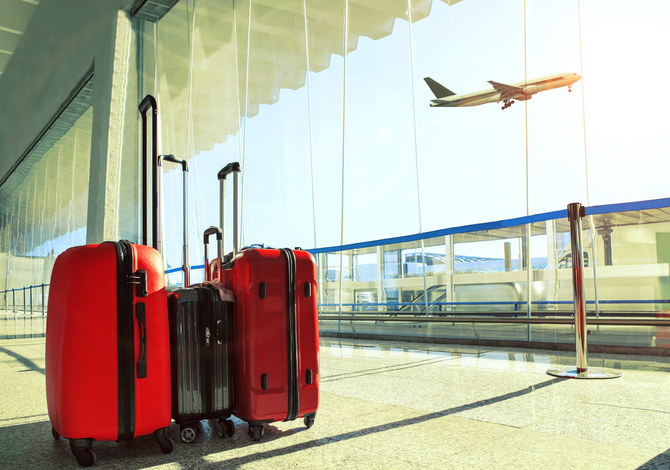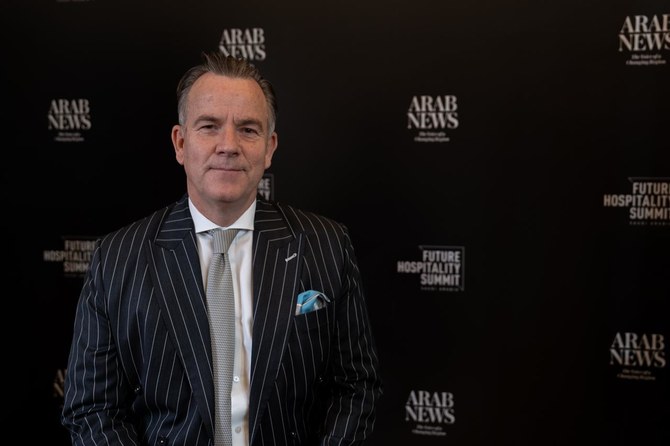The following editorial appears on Bloomberg View:
In Stockholm, the homeless now accept credit cards, Bloomberg News reports. Sweden’s high-tech economy has made bills and coins almost obsolete, so equipping the destitute with card readers — a world first, apparently — was a natural evolution.
It’s a tidily Nordic expression of a global trend. This is the age of credit cards and debit cards, of PayPal, Square and Amazon Coins. In some places — parts of Africa, for example, where people can use their mobile phones to buy everything from dinner to insurance — the need for cash for legitimate purposes has all but disappeared. Worldwide, the number of mobile-payment users is expected to reach almost 250 million in 2013, up from about 200 million in 2012.
Governments the world over may be tempted to speed this transition to a cashless society. And they could do so pretty easily, first by accepting digital payments for taxes and public services, then by gradually winding down their mints and printing presses. But while they’re right to encourage people — especially the poor — to take advantage of digital payment methods, governments also should prepare for the risks involved, remembering that cash has some virtues that whatever replaces it should strive to match.
The disadvantages of cash won’t be missed — and there are plenty of them. It’s vulnerable to theft. People lose it. It’s difficult to move around in large quantities or over distance. It’s ideal for anyone who wants to launder money or evade taxes, which is bad news for those who don’t.
All this means that cash costs money: A study published last month by Tufts University estimates that handling hard currency costs US businesses $55 billion annually in theft, security expenses and additional labor. For consumers — who pay nearly $8 billion each year in automated teller machine fees and spend an average of 28 minutes a month traveling to access money — cash imposes costs of about $43 billion a year. Lost tax revenue from unreported cash transactions adds up to at least $100 billion annually.
As well as being cheaper, digital money could make it easier for central banks to do their job, because in a cashless world, they could fight recessions and deflation by driving interest rates to less than zero. This is a big deal. Cash creates what economists call the zero lower bound — who’d accept negative interest rates when you can hold cash instead? Cashlessness does away with it: Standard monetary policy, based on lowering interest rates as needed, wouldn’t have to stop when rates hit zero, so there’d be no need for quantitative easing and other questionable innovations.
And then there are the societal benefits. Most important, moving away from cash could ease access to the financial system for the world’s poor and “unbanked,” who pay the most to access money (think payday lending and check-cashing fees) and, in effect, transfer some of their income to better-off households that use credit cards. Getting these folks to use digital-payment systems would be an excellent first step toward getting them into the banking system, making it easier for them to get loans and save money.
So what’s not to like? For all its benefits, a cashless society is also one brimming with potential problems. Some are familiar to anyone with a credit or debit card: transaction fees, overdrafts, usury, identity theft, piratical hackers and old-fashioned fraud. Others are new: Many novel payment systems aren’t compatible with each other and have uncertain life spans, for instance. Cash still benefits from powerful network effects.
The age of credit cards is also the age of behavioral economics, a discipline that advises caution on the issue. When you spend cash (to simplify a bit), pain receptors in your brain activate and discourage you from overindulging. Credit cards don’t have the same effect. People will pay more for the same item using credit cards (likewise debit and gift cards). They tend to pay less attention to a product’s cost and more to its benefits. They rationalize dishonesty more easily. Not to be overly alarmist, but they also buy more junk food.
To some extent, technology can help mitigate these problems. Mobile-phone applications are already available to help people balance their budgets or alert them when they exceed a daily spending threshold. Strong visual cues that aim to replicate the ordeal of parting with cash might also help. Still, there’s every reason to think that indebtedness will increase as cash use dwindles.
Another concern is privacy. In a cashless society, everything you buy, like it or not, could be on a permanent record, ready to be collated by marketers, hacked by criminals or monitored by an increasingly invasive government. Unlike with credit cards, you’d have no choice. You don’t have to be a criminal to be uncomfortable with such an arrangement. The growing popularity of “cryptocurrencies” such as Bitcoin and the enduring demand for $100 bills testifies to how powerful the impulse is to protect one’s financial privacy.
One potential solution for central banks to consider is to offer a digital legal tender of their own. Such a currency could, in theory, offer the benefits of cashlessness yet maintain the legitimacy of a nationally backed tender, as well as some of the other benefits that cash bestows. It could also bring some order to the fragmented and confusing market for payment systems.
Despite the problems a cashless society presents, its economic logic and its potential to improve the lot of so many poor people seem irresistible. Getting there from here will require a lot of time and flexibility, and it will exact a heavy toll, no doubt, of unintended consequences. Technological advancement demands its due — but it helps if you don’t need cash to pay it.
Cashless world will have many rewards, some scary risks
Cashless world will have many rewards, some scary risks
Marriott International reveals that majority of its guests in Saudi Arabia are local

RIYADH: Marriott International has revealed that the majority of the hotel’s guests in Saudi Arabia are local, indicating the importance of internal tourism in the Kingdom.
Speaking in an interview with Arab News on the sidelines of the Future Hospitality Summit, taking place in Riyadh from April 29 to May 1, Chadi Hauch, the hotel’s regional vice president of development, explained that the local market has driven leisure tourism in Saudi Arabia.
“At this stage right now, obviously the majority of the guests are local, but you have to take into consideration as well that, in Saudi, tourism has been majorly local,” Hauch said.
He underscored that COVID-19 was a significant experience that opened the eyes of the Ministry of Tourism and the local Saudi market.
“During COVID-19, when the whole country closed down, the Saudis were super excited to visit their own countries. They were pushed within their own country because they needed to get out of the cities such as Riyadh and Jeddah and they started visiting secondary cities like Abha,” the VP said.
Consequently, Hauch added that this was when they noticed the nation had much more to offer.
“But obviously as the destination grows and obviously this is this is what the government is pushing for, we will definitely start seeing international travelers trying to visit these destinations that is trying to position itself kind of like a Maldives destination,” he said.
Hauch also explained that Marriott International currently has 38 open properties operating in the Kingdom and is planning for 40 more.
During the interview, the VP tackled how Marriott International Inc. and Al Qimmah Hospitality, a subsidiary of BinDawood Trading, signed an agreement to bring the JW Marriott brand to Jeddah.
Located on the Jeddah Corniche, the hotel is expected to become a prime destination for luxury-seeking travelers who desire a waterfront escape, he underlined.
“The beauty about this project is that it’s a mixed-use project that will have office space and will have retail. So, it’s quite a sizable project that will take a little bit of time. We expect hopefully to open in the next five to six years, depending on how fast the construction goes,” Hauch disclosed.
The VP also highlighted the announcement a few days earlier that the company had signed an agreement with NEOM to open its second Ritz-Carlton Reserve in Saudi Arabia.
The hotel will be located in Trojena, a year-round mountain destination situated in the country’s northwest region.
The resort is expected to feature 60 expansive one- to four-bedroom villas. Plans also include a spa, swimming pools, and multiple culinary venues.
Additionally, Hauch discussed how Marriott has two different main operating models.
“We either do management agreements or we do franchisee agreements. Usually when we do operate these hotels in these models, we don’t get involved in the investment of the hotel. Usually, it is the owner who develops the hotel, and it depends on the location and, positioning of the hotel. These construction costs vary; they vary quite a lot between a five-star, a three-star, four-star or the luxury positioning,” the VP emphasized.
More than 1,200 global investors are expected to have attended the FHS. The event, held at Al Faisaliah Hotel, focused on sustainable tourism and technology-driven hospitality under the theme, “Invest in Tomorrow: Today, Together.”
Valor Hospitality ventures into Saudi Arabia with luxury hotel in Abha

RIYADH: Abha, a city in Saudi Arabia’s Asir region, is poised to welcome its first luxury lifestyle hotel through an upcoming deal with American operator Valor Hospitality.
The company, which has overseen a portfolio of major brand hotels including Intercontinental, Marriott, Hilton, Radisson, Wyndham, and Hyatt, also aims to enter secondary and tertiary markets. While major brands concentrate on large-scale developments, Valor aims to cater to “outer regions.”
Speaking to Arab News at the Future Hospitality Summit in Riyadh, Julien Bergue, the co-founder and managing partner of the company, highlighted that Valor has signed a deal to break ground on a “very different” upscale property in Abha, with details to be announced within a month.
Bergue said: “Saudi Arabia is a very specific market. We’re very excited about Saudi Arabia. We’ve been excited about it for five years. We’re watching, we’re learning. We signed our first property in Abha in the Asir region. I’m very proud of it. But we will make it public in about a month’s time; it is the first lifestyle hotel in Abha.”
Expressing excitement about the deal, he called it a “great asset, with a very great owner as well.”
“We’re excited about it. Our plans in Saudi Arabia is to tackle secondary and tertiary regions at the moment. While all the big brands are very focused on mega developments, we are helping now the outer region,” he added.
The company’s future plans in the Kingdom also include collaborating with the Ministry of Tourism and the Tourism Investment Fund to “see how we can position better investment throughout the secondary tertiary region.”
This includes rolling out a training academy for young Saudis in the sector, the executive said, with plans to launch within the next year and a half.
The academy will leverage the operator’s expertise to bridge the gap between the upcoming surge in the hospitality industry and the human capital needed to fulfill those goals.
“In a year and a half, we should be ready to roll out the academy here with a much deeper structure behind it. This is super important for the ecosystem of our own business in Saudi Arabia and for the other players in the space. So, it's a very good initiative,” he said.
The executive revealed that they are planning to implement shorter programs. “So we are not aiming toward management training. We are going to really aim toward technical training skills, such as housekeeping and other core stuff required for running operations.”
This training program aims to enroll a thousand participants every month through an “aggressive short-term program.”
By 2030, Valor’s ultimate goal is to manage properties with 6,000 to 7,000 keys under their management.
Saudi airports awarded customer experience accreditation, elevating travel services

RIYADH: Customer service offerings at 16 Saudi airports have been recognized with a prestigious global award.
The Airports Council International’s Customer Experience Accreditation for 2024 has recognized facilities operated by the Kingdom’s Cluster2 Airports Co., which include Abha International Airport, Al-Jouf Airport, and Al-Qurayyat Airport.
Additionally, they consist of Bisha Airport, Dawadmi Airport, and Hail International Airport, as well as King Abdullah bin Abdulaziz Airport, King Saud bin Abdulaziz Airport, and Najran Airport.
“This accomplishment is not merely a testament to the quality and efficiency that we deliver; it also underscores our persistent dedication to enhancing the journey of each customer who passes through our gates,” the company said in an X post.
The ACEA program assists airports in enhancing customer experience management by guiding them through a comprehensive review and training process, which emphasizes stakeholder and employee engagement, as well as staff development, according to its website.
Other airports to receive this accreditation include Prince Abdul Mohsen bin Abdulaziz International Airport, Prince Nayef bin Abdulaziz Airport, and Rafha Airport.
Moreover, they include Sharurah Airport, Taif International Airport, Turaif Airport, and Wadi Al-Dawasir Airport.
The achievement of these airbases is a testament to the robust support and consistent oversight provided by the General Authority of Civil Aviation and the company, the Saudi Press Agency reported.
These airports have been acknowledged by ACI for their ongoing commitment to delivering exceptional services for travelers.
Ali Masrahi, CEO of Cluster2 Airports Co., expressed his satisfaction with this achievement, emphasizing the company’s focus on three key areas: understanding customer needs, strategic planning tailored to traveler requirements, and continuous improvement through monitoring key performance indicators across all aspects of the passenger.
Masrahi emphasized his company’s dedication to excellence and improving the airport travel experience.
The company added in its post that three of its airports received the same accreditation in 2023: “Today, we are proud to witness this number grow to encompass more of our airports, marking a remarkable achievement that underscores the progress and development we aim to accomplish.”
The firm further explained that obtaining accreditations from the ACI is the outcome of the team’s persistent efforts and unwavering dedication to ensuring an unforgettable travel experience.
ACI’s first Asia-Pacific and Middle East office was inaugurated in Riyadh in September 2023. Saudi Arabia’s Transport Minister and General Authority of Civil Aviation Chairman Saleh Al-Jasser, dignitaries and top officials from 49 countries attended the event.
ACI is an organization of airport authorities that aims to unite industry practices for airport standards by working with governments, regional members, experts, and international groups.
Accor to build 45 new hotels in Saudi Arabia by 2030: CEO

RIYADH: French multinational hospitality company Accor is set to expand its hotel portfolio in Saudi Arabia with 45 new establishments by 2030, as revealed by the regional CEO.
In an interview with Arab News, Duncan O’Rourke underscored the company’s dedication to the Kingdom’s vibrant hospitality sector and its aspirations embodied by Vision 2030.
O’Rourke said: “Saudi is an extremely important theater for us to play also because of what is happening, we are very proud to be part of this journey, this vision of 2030.”
Reflecting on the firm’s substantial presence in Saudi Arabia, O’Rourke highlighted that while the company currently has 41 hotels in the Kingdom, it plans to add more – initially claiming there would be another 40, before later revealing it be 45, with an additional 9,800 rooms by 2030.
Commenting on Accor’s participation in the Future Hospitality Summit, the CEO said that it aims to actively share its expertise, learn from industry peers, and collaborate on initiatives that will shape the future of the hospitality sector.
With a historical foothold in the Kingdom, the CEO reminisced: “Accor has a very long history in Saudi, a very established history.”
He added: “We are very excited to be here, me personally, having lived here 22 years ago and see the growth and the challenges.”
O’Rourke added: “One of the things we noticed tremendously was talent, and getting people to work in the hotels. Opening the hotels is one thing, but we need the local talent as well.”
He highlighted Accor’s partnership with the Ministry of Tourism and Education to nurture Saudi talent for the hospitality industry, saying: “We signed a partnership, which we were really excited about with the Minister of Tourism and Education, so we signed that partnership to be able to educate on all different levels, local people, to work in the hotels as well.”
In line with Accor’s commitment to nurturing local talent, O’Rourke explained that the firm’s academies are based worldwide and driven out of Paris, saying: “It’s been very famous how we’ve done that and trained and coached, but we felt that here with this tremendous growth in the speed of that growth and the fact that we really wanted to get local talent working.”
Diving more into the “Tamayyaz by Accor” program, the CEO explained that the educational process goes from an entry-level to a more senior position.
Accor and the Ministry of Tourism in Saudi Arabia have signed this partnership, which is dedicated to nurturing and developing Saudi talent in the hospitality industry.
O’Rourke told Arab News that they’re starting with a modest number of around 250 trainees, but that’s “quickly going to go up to over 3,000 continuously going through the process there, and so every process, 3,000 more going through.”
Expanding beyond major urban centers, O’Rourke emphasized “it’s not just in Riyadh, or in Jeddah, but in the secondary and third cities as well,” signaling Accor’s commitment to broadening its footprint across the Kingdom.
In a discussion about Accor’s varied brand lineup, he explained: “We split our luxury lifestyle, so we’re one of the largest luxury players in the market, the largest lifestyle player in the market, and then we have that premium midscale economy.”
Accor is the largest hospitality operator in the Holy Cities, with 13 hotels encompassing 11,900 rooms and a pipeline of six hotels with 1,700 rooms.
The firm has significantly contributed to developing the holy destination of Makkah, providing high-quality hospitality with direct access to the Haram.
Accor currently operates 13 brands and more than 16,000 rooms in Saudi Arabia, ranging from premium to economy segments, including luxury brands and Ennismore’s lifestyle collective. With leading names like Novotel, Swissotel, and Pullman, it’s a top hospitality provider offering diverse services and experiences.
He added: “We go with all those brands there in those resorts, not in just major cities, with Banyan Tree, Sofitel, and then, of course, Fairmont Raffles and the rest of the traditional brands as well.”
O’Rourke highlighted the necessity of employing locals, saying: “At the Novotel hotel, which we opened tonight, that’s the first female GM (general manager) in Saudi and so we are very proud of this diversification and giving opportunities to everybody there.”
The CEO added: “Being able to be part of this growth industry in terms of opening hotels, but also in educating and watching talent grow and one day moving from Saudi out and using that talent abroad, is also very exciting.”
In terms of partnerships, O’Rourke emphasized Accor’s strategic approach to collaborations that benefit both parties and local communities.
“In any partnership which we do with our core, we want somebody that embraces our values. We call them partners, we want to synergize with partners and then grow where it makes benefit for them, for us and the communities as well,” he said.
Reflecting on market trends, O’Rourke said: “Where we see the secondary cities the most traction we are in that sense there is coming from the mid-scale and the premium midscale economy,” highlighting the burgeoning demand in these segments.
“Where we do see a difference and more and more coming through is that leisure markets both locally, so Saudis traveling in Saudi, but also from the GCC coming through there,” the CEO added acknowledging the rise of leisure travel.
As Saudi Arabia continues its remarkable growth trajectory, O’Rourke expressed optimism, asserting: “We stay focused on our footprint. We have a very aggressive expansion plan to go from 44 to another 40 by 2030 is already aggressive.”
He concluded Accor’s commitment to delivering on its expansion goals while fostering talent development in the Kingdom, saying: “We continue to drive forward and make sure that we are not only opening hotels with the right brand, right partners, but then being able to really deliver on what we promised.”
Saudi banks’ funding profile changing on rising mortgage demand: S&P Global

RIYADH: Saudi banks are expected to pursue alternative funding strategies to deal with the rapid expansion in lending, fueled by the demand for new mortgages, according to S&P Global.
In its latest report, the credit-rating agency stated that the funding profiles of financial institutions in the Kingdom are set to undergo changes, primarily driven by a state-backed initiative to boost home ownership.
According to the analysis, mortgage financing represented 23.5 percent of Saudi banks’ total credit allocation at the end of 2023, compared to 12.8 percent in 2019.
“The ongoing financing needs of the Vision 2030 economic initiative and relatively sluggish deposits growth, is likely to incentivize banks to seek alternative sources of funding, including external funding,” said S&P Global.
The report also predicted that this pursuit of external funding could potentially impact the credit quality of Saudi Arabia’s banking sector.
According to the US-based rating agency, lending growth among Saudi banks has outpaced deposits, with the loan-to-deposit ratio exceeding 100 percent in 2022, up from 86 percent at the end of 2019.
S&P Global expects this trend to persist, particularly with corporate lending playing a more significant role in growth over the next few years. “We consider Saudi banks are likely to turn to alternative funding strategies to fund that expansion,” the report said.
It added: “We consider, however, that the risk created by the maturity mismatch is mitigated by the relative stability of Saudi deposits.”
The agency also predicted that Saudi banks’ foreign liabilities will continue to increase, rising from about $19.2 billion at the end of 2023 to meet the funding requirements of strong lending growth, particularly amidst lower deposit expansion.
The report highlighted that Saudi banks have already tapped international capital markets, and the credit rating agency expects this trend to continue for the next three to five years.
According to S&P Global, the Saudi banking system could transition from a net external asset position of SR42.9 billion, or 1.6 percent of lending, at the end of 2023 to a net external debt position within a few years.
In April, S&P Global, in another report, stated that banks in the Kingdom are anticipated to experience robust credit growth ranging between 8 to 9 percent in 2024.
The agency noted that this credit expansion will be propelled by corporate lending, fueled by increased economic activities driven by the Vision 2030 program.
Moreover, the report added that the Saudi government and its related entities are expected to inject deposits into the banking system, thereby supporting the credit growth of financial institutions in the Kingdom.














